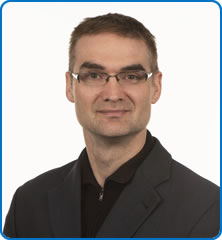GMC Number: 6077089
Year of first qualification: 2003, University of London
Specialty: Upper GI Surgery
Clinical interests: Laparoscopic (keyhole) abdominal surgery including: Bariatric Surgery, Hiatal Surgery (Reflux disease), Biliary disease (gallstones), Hernia Surgery
Secretary: Kate Hewings
Telephone: 0117 414 0837
Mr James Hopkins is currently the Clinical Lead for GI Emergency Surgery at North Bristol NHS Trust.
Mr Hopkins MA DPhil FRCS completed his post-graduate medical training at Guy’s & St Thomas’ Hospital, University of London in 2003. Prior to medical school he completed an undergraduate degree and doctorate in Biochemistry and Metabolism at the University of Oxford (1990 – 1997) and was a Research Fellow in Medicine at Harvard Medical School in Boston MA from 1998 – 2000.
After medical school Mr Hopkins completed basic surgical training in the London Deanery (Imperial College 2005 – 2008), higher surgical training in the Wessex Deanery (2008 – 2015) with a concurrent clinical lectureship at the University of Southampton (2011 -2015) completing sub-specialist training at the Solent Centre for Digestive Diseases at QA hospital Portsmouth – specialising in bariatric surgery, and obtaining his CCT in 2015. Following this he undertook a post-CCT Bariatric surgery fellowship at Musgrove Park Hospital in Taunton before joining North Bristol NHS Trust.
His specialist interests are in laparoscopic (keyhole) abdominal surgery, in particular the management of gallstone disease, gastro-oesophageal reflux disease and all types of hernias. Mr Hopkins has a specialist interest in Complex Abdominal Wall Reconstruction for complicated or recurrent hernias. He is also a fully trained Bariatric (weight-loss) surgeon having completed a sub-specialist and fellowship training. He offers a range of operations for severe and complex obesity including gastric band, gastric bypass and sleeve gastrectomy within the team at NBT.
Mr Hopkins has an interest in clinical outcomes research and has been the lead in the in the development of a Core-Outcome Set for Bariatric Surgery (the BARIACT Project) as part of the ByBandSleeve randomised controlled trial. Mr Hopkins is the NBT site Principle Investigator for the ByBandSleeve multicentre RCT. He is a member of the National Bariatric Surgery Registry data committee, with responsibility for the NBSR.co.uk website, and was an advisor on the 2012 NCEPOD enquiry into bariatric surgery – Too lean a service?
Mr Hopkins is a member of Association of Upper Gastrointestinal Surgeons, ASGBI, British Obesity and Metabolic Surgery Society (of which he recently completed his tenure on BOMSS Council).
If you would like to view independent feedback visit www.iwantgreatcare.org/doctors/mr-james-hopkins-1 If you would like to leave your own feedback visit http://iwgc.net/egwgw

